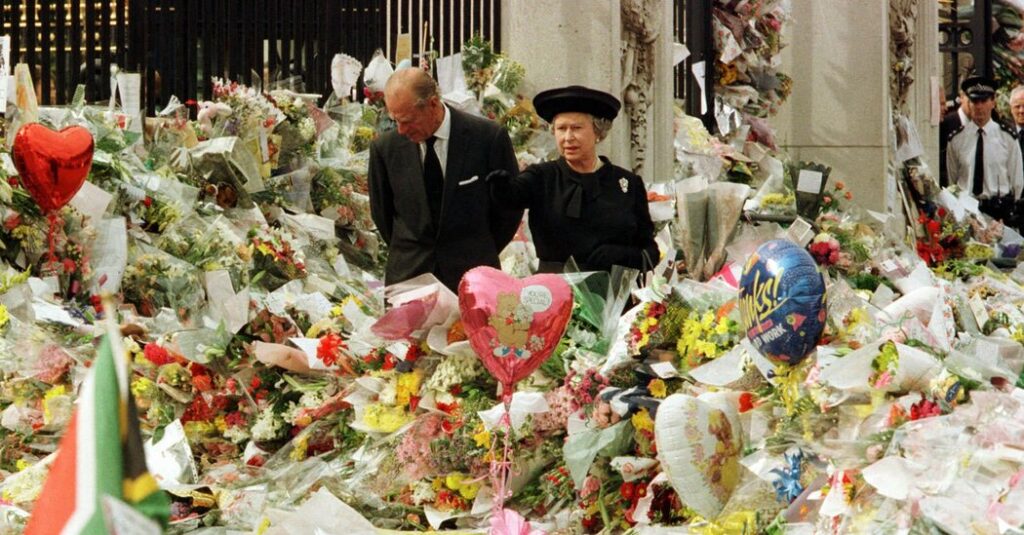
She rarely spoke in public except to make scripted remarks in official settings — a state dinner, a charity function, her annual Christmas radio address — adding to the sense that it was impossible to know who she really was behind the tightly controlled public persona. And so it was striking when she felt moved to make remarks that went beyond her normally anodyne utterances.
She made a rare reference to her own, and the country’s, travails in 1992, a year in which Windsor Castle caught on fire on her wedding anniversary, three of her four children separated from or divorced their spouses and one of her daughters-in-law was caught up in a sex scandal lasciviously covered by the newspapers. But it seemed apt for a woman of her reserve and aversion to self-pity that she used both gentle sarcasm and Latin in making her point.
In a speech in London meant to mark her 40th anniversary on the throne, she said: “1992 is not a year on which I shall look back with undiluted pleasure. In the words of one of my more sympathetic correspondents, it has turned out to be an ‘Annus Horribilis.’”
And the statement she made after Sept. 11, read aloud by Britain’s ambassador to the United States in a service in New York honoring the Britons lost in the attacks, is still memorable for its simple, aching beauty. “Nothing that can be said can begin to take away the anguish and the pain of these moments,” the statement said. “Grief is the price we pay for love.”
Perhaps at no point in recent years was the monarchy more in trouble, or the queen’s own position more precarious, than in the febrile, bewildering days after the death of Diana, the Princess of Wales, 25 years ago. The monarchy is embedded into the British system of government and not reliant on the will of the people; the monarch is not voted in or out of office; the royal family is not subject to recall. Yet, it is constantly called upon to make a case for its own relevance.
After Diana’s death, the queen’s widely admired qualities of reserve, the notion that family matters are private and that one doesn’t air one’s feelings in public, seemed suddenly to work against her. “Show Us You Care!” was a typical headline at the time. And so the queen broke with tradition, returning to London, ordering the flags atop Buckingham Palace to be lowered to half-staff and agreeing to make a rare public address to the nation about something she considered very personal. It was an expression of humility and an effort to soothe a nation’s sadness — but also a means of steadying a shaken monarchy.
You may also like
-
Canada's defense chief eyes change in Arctic approach with change in weather
-
U.S. special operations leaders are having to do more with less and learning from the war in Ukraine
-
Ben Cardin breaks with Biden on Israel weapons shipments after war conduct report
-
Ukraine rushes troops to defend Kharkiv against Russian attack
-
White House insists Israel is getting 'everything they need' after Biden halts arms shipment

